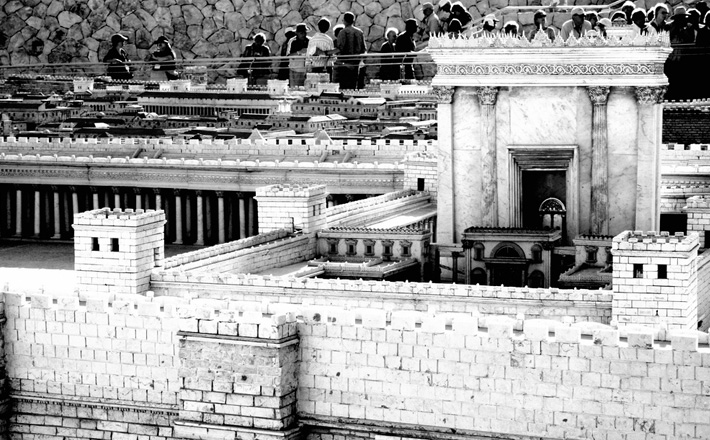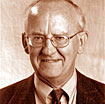Commentary on Malachi 4:1-2a
Most of the people sitting in the pews would have no trouble naming Genesis as the first book of the Bible.
Most would also be able to quote the first words in that book, “In the beginning … ”
But even the most diligent church-goers might have some difficulty naming the last book of the Old Testament. “Malachi” is the final entry in a collection of a dozen shorter prophetic books beginning with Hosea and called the “Minor Prophets.” The Old Testament lesson for this Sunday is from that last book which ends with the last promise of the Old Testament, “Lo, I will send you the prophet Elijah … ”
I remember clearly the first time I heard words from the prophet Malachi. It was the fall of my freshman year in college. The word was around, “You should sing in the Messiah. Practices begin in November. It’s lots of fun!”
While I played in the college band, I had never gone in so much for singing in choirs. So I went with a few friends and discovered that this was indeed a big event, involving hundreds of students, faculty, and townspeople. The conductor was Weston Noble, and the singers packed a basement rehearsal room. There was an alto solo from Malachi, Chapter 3: “But who may abide the day of his coming … ” Then came an up-tempo part marked “Prestissimo” in our music books, “For he is like a refiner’s fire,” again from Malachi. Next was a selection for the whole chorus, “And he shall purify.” It was clear that most of the people around me had sung it before, and they charged through that chorus like a roaring fire. I still remember stepping outside after that first rehearsal, a gentle snow falling in the November darkness, and those words from Malachi running through my head: “and he shall purify … ”
Now to the text for this Sunday.
The historical setting for Malachi
Malachi is the last of the twelve shorter prophetic books, which conclude English editions of the Old Testament. The prophet is addressing a people living in the Jerusalem area who have returned from years of exile in Babylon (587-539 B.C.E.). They are trying to get their small community going again. Haggai and Zechariah have succeeded in getting a temple rebuilt and re-dedicated in 515 B.C.E. Nehemiah was a layperson, appointed governor and charged with the task of building a wall to guarantee security for the citizens of Jerusalem. His contemporary Ezra was a priest whose job it was to get worship in the temple going once again and to get religion back into the everyday lives of the people. Malachi (whose name means in Hebrew “my messenger”) was active among the members of this post-exilic community. True to the meaning of his name, he brought to these people a message from God.
The prophet’s preaching
The “book” of Malachi is made up of a series of six short sermons. They give us an idea of the situation in this community. All was not well, and the prophet clearly pointed that out!
1) 1:1-5. The destruction of Edom is understood as a punishment for this nation’s attacks upon Israel (see the prophet Obadiah). This is a reminder that the LORD’s power goes beyond the borders of Israel.
2) 1:6-2:9. The clergy (that is, the priests) are in for the sharpest prophetic criticism. They have failed in their calling. They were in charge of worship, which meant conducting the sacrifices and offerings. But they have brought blind, sick animals for sacrifices when they should have brought the best! (see Leviticus 22:17-30).
The priests are also in charge of the congregation’s educational program, and that too has been a failure (“you have caused many to stumble by your instruction” Malachi 2:7-9)
3) 2:10-16. Intermarriage was causing religious problems in the homes (2:10). Divorce has become a scandal. “I hate divorce,” says the LORD. Husbands have been unfaithful to their young wives. This has become a metaphor for the people’s unfaithfulness to the LORD.
4) 2:17-3:5. People are complaining that the LORD is unjust (2:17). They are involved in bizarre magical practices (3:5). They also commit adultery, swear by other gods, and don’t pay their workers a fair minimum wage. In charges reminiscent of the prophets Amos, Micah, and Isaiah, the rich do not care for the powerless — the widow, the orphan, and the refugee (NRSV “alien”). And they don’t have a proper regard for the LORD (3:5).
5) 3:6-12 Expected to engage in proportionate giving, people are cheating on the amount of their tithes (see Leviticus 27:30; Deuteronomy 14:28).
6) 3:13-4:3 The people are complaining, “Our religion is a waste of time. Evil people prosper and we suffer. It’s not fair!”
Next comes the portion of the text assigned for this Sunday. A day of judgment will come, when arrogant evildoers will be punished. But those who are faithful will receive God’s blessings: “the sun of righteousness shall rise, with healing in its wings” (see also Psalm 84:11).
There is another promise: the LORD will send the prophet Elijah once again (4:5). Jewish tradition is to repeat 4:5 at the end of the book, to end on a positive note. .
Toward preaching on Malachi 4:1-2a
The New Testament identifies this “second Elijah” with John the Baptist (Matthew 11:114; 17:9-13; Mark 6:14-15; Luke 1:17). The preacher will want to call attention to the link between Elijah and John the Baptist, and could also refer to the Jewish custom of leaving an empty place for Elijah at the Passover table.
The sermon could call attention to Handel’s Messiah, which will be often heard during this season. The alto solo and chorus are familiar, but few know that it is setting of these verses from Malachi!
Charles Wesley has set this text to music, in the seldom-sung third stanza of “Hark the Herald Angels Sing!” This is a natural hymn for the season!
Hail the heav’n born Prince of peace,
Hail the Sun of righteousness!
Light and life to all he brings,
Ris’n with healing in his wings.


November 13, 2016